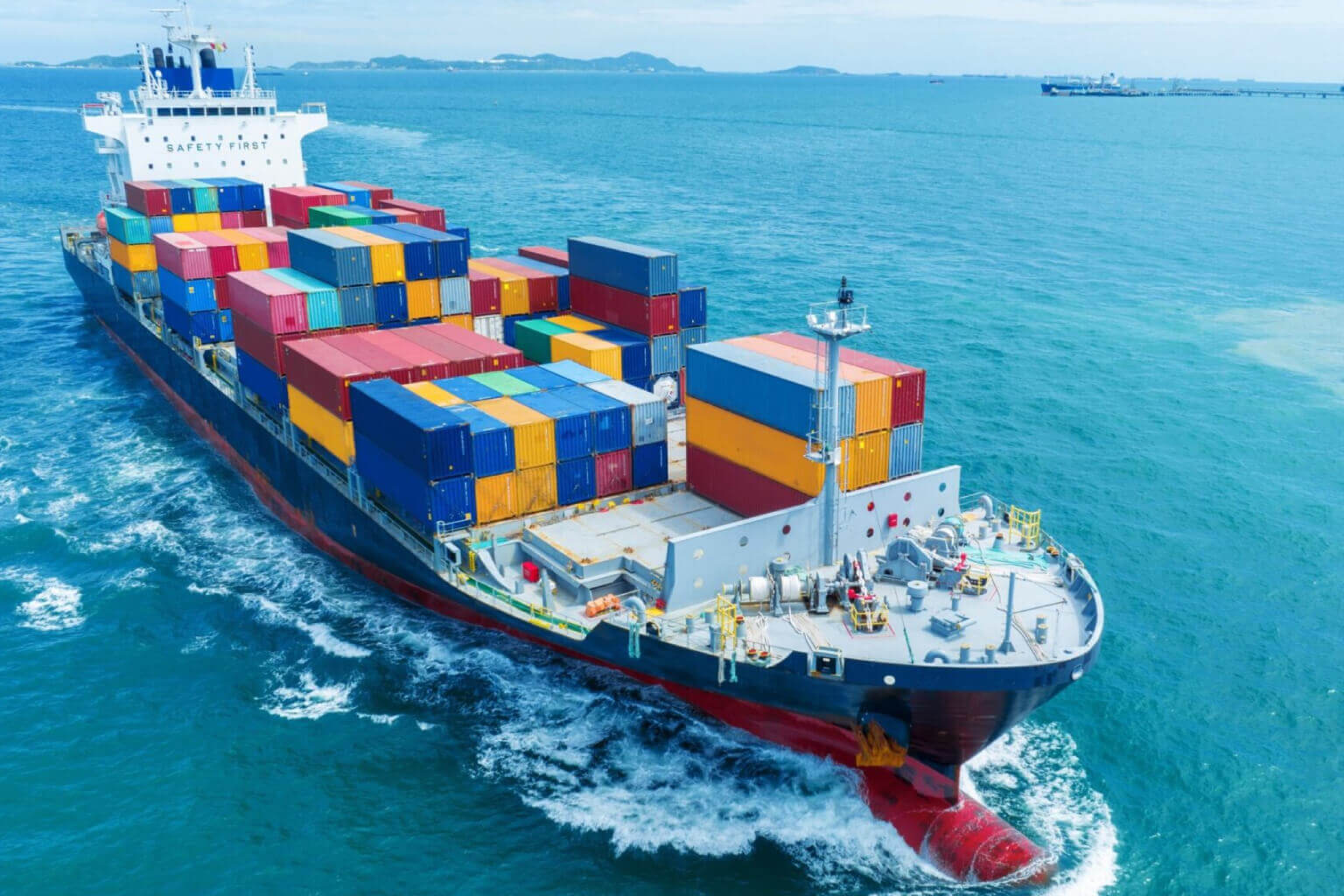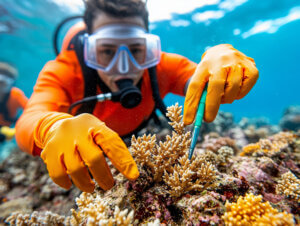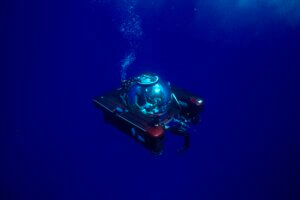Role of Oceans in the Global Economy
Oceans cover over 70% of the Earth’s surface and are more than just vast bodies of water they are the lifeblood of the global economy. From enabling international trade routes to feeding billions and supplying renewable energy, oceans play a pivotal role in global economic development and stability.
In this article, we’ll explore the role of oceans in the global economy, including how they support industries, create employment, generate revenue, and ensure sustainable futures.
Why Oceans Are Critical to Economic Systems
The Blue Economy a term describing the sustainable use of ocean resources for economic growth, improved livelihoods, and jobs has become a key driver of development for both developed and developing nations.
Key Stats:
-
The ocean economy is valued at $3 trillion annually, about 5% of global GDP
-
Over 3 billion people rely on oceans for their livelihood
-
Oceans handle over 80% of global trade by volume
-
Marine sectors employ more than 60 million people globally
1. Maritime Trade & Shipping: The Artery of Global Commerce
How Oceans Facilitate Global Trade
The majority of international trade is conducted over oceans via commercial shipping. Ports and maritime logistics connect countries and drive economic activity worldwide.
Economic Impact:
-
Over 11 billion tons of goods are transported via sea annually
-
Ports and logistics hubs generate billions in revenue
-
Coastal economies rely heavily on import/export operations
Key Industries:
-
Container shipping
-
Cruise lines
-
Freight and logistics companies
-
Shipbuilding and repair
2. Fisheries & Aquaculture: Feeding Billions
Oceans as a Food and Income Source
Fisheries are among the oldest industries tied to oceans and continue to be an essential component of food security and economic stability in many countries.
Key Facts:
-
Provides 17% of global animal protein consumed
-
Employs 60 million people, especially in Asia and Africa
-
Fish is the most traded food commodity globally
Economic Impact:
-
Worth $406 billion globally as of the latest data
-
Aquaculture is the fastest-growing food sector
-
Crucial for export economies like Norway, Chile, and Vietnam
3. Coastal & Marine Tourism: A Multibillion-Dollar Industry
How Tourism Depends on Oceans
Coastal regions and tropical islands attract millions of tourists annually. Ocean-based tourism fuels the economy of countries like the Maldives, Greece, Australia, and the Caribbean.
Economic Contributions:
-
Responsible for $390 billion globally
-
Supports 1 in 10 jobs worldwide
-
Promotes small businesses like hotels, dive schools, restaurants
Popular Activities:
-
Cruise tourism
-
Scuba diving and snorkeling
-
Beach resorts and eco-tourism
-
Marine wildlife excursions
4. Offshore Energy: Fueling Economic Growth
Oceans as a Source of Power
Offshore energy including oil, gas, wind, and tidal contributes significantly to national economies and energy security.
Breakdown:
-
Offshore oil and gas account for 30% of global production
-
Offshore wind energy capacity is rapidly growing, especially in Europe and China
-
Wave and tidal energy are emerging technologies with long-term potential
Investment & Job Creation:
-
Multinational investment in offshore wind exceeds $50 billion annually
-
Supports high-paying engineering, construction, and maintenance jobs
5. Marine Biotechnology & Research
Oceans as a Source of Innovation
Marine biotechnology is an emerging sector that taps into the genetic resources of marine life to develop products in pharmaceuticals, agriculture, and cosmetics.
Real-World Applications:
-
Anti-cancer compounds from sponges and algae
-
Enzymes used in laundry detergents from deep-sea bacteria
-
Marine collagen used in anti-aging skincare
Economic Potential:
-
Expected to become a $6 billion+ industry by 2030
-
Drives innovation, R&D investments, and biotech startups
6. Infrastructure & Port Development
Oceans Enable Strategic Infrastructure
Ports, harbors, and coastal infrastructure are vital for global logistics, national security, and trade.
Key Benefits:
-
Attract foreign direct investment (FDI)
-
Support local industries and employment
-
Serve as innovation hubs for green port initiatives
Case Studies:
-
Singapore: One of the world’s busiest ports contributes over 7% of GDP
-
Rotterdam, Netherlands: A logistics powerhouse in Europe
7. Environmental Services & Natural Capital
The Ocean’s Hidden Economic Value
Beyond visible industries, oceans provide critical ecosystem services that sustain the global economy.
Services Include:
-
Carbon sequestration (absorbing CO₂)
-
Climate regulation
-
Coastal protection through mangroves and coral reefs
-
Waste treatment and oxygen production via phytoplankton
Economic Value:
-
Marine ecosystem services estimated at $24 trillion
-
Coral reefs alone provide $36 billion annually in tourism, fisheries, and storm protection
8. Employment & Livelihoods
Oceans Support Global Jobs
The ocean economy supports tens of millions of jobs across various sectors, from fishing to marine engineering.
Job Sectors:
-
Seafaring and ship operations
-
Marine research
-
Tourism and hospitality
-
Renewable energy
-
Port operations
Economic Impact:
-
Vital source of income for coastal and island communities
-
Offers diverse job opportunities for unskilled to highly-skilled labor
9. Shipping Insurance, Financing & Legal Services
Financial Services in the Ocean Economy
Maritime finance and legal services are specialized sectors that contribute significantly to the global financial ecosystem.
Roles:
-
Ship financing and leasing
-
Marine insurance (vessel and cargo)
-
Admiralty law and international maritime arbitration
10. Blue Economy and Sustainable Development
Shaping the Future of Global Prosperity
The Blue Economy focuses on the sustainable use of ocean resources to balance economic growth and environmental protection.
Global Strategies:
-
UN Sustainable Development Goal 14: Life Below Water
-
World Bank and UNDP Blue Economy frameworks
-
Regional initiatives like Africa’s “2050 Africa’s Integrated Maritime Strategy”
Why It Matters:
-
Encourages green technologies and circular economies
-
Empowers local communities
-
Aligns global economies with climate goals
Challenges to the Ocean Economy
Despite its promise, the ocean economy faces multiple threats:
Major Risks:
-
Climate change (ocean warming, acidification)
-
Overfishing and illegal fishing
-
Marine pollution, especially plastics
-
Loss of biodiversity and coral bleaching
-
Unsustainable tourism and development
What Needs to Be Done:
-
Enforce marine protection laws
-
Support sustainable fishing and aquaculture
-
Fund clean ocean technologies
-
Promote awareness and education
-
Invest in resilient infrastructure
Oceans Are the Economy’s Backbone
The role of oceans in the global economy cannot be overstated. They are transport corridors, food baskets, energy sources, job providers, and climate regulators. Investing in ocean sustainability is no longer optional it’s a global imperative.
Whether you’re a policymaker, business leader, consumer, or environmentalist, the ocean economy affects your life. By supporting sustainable ocean practices and protecting marine ecosystems, we can ensure long-term prosperity for generations to come.
Let’s turn the tide and make the ocean a pillar of economic growth and planetary health.
FAQs
How do oceans contribute to global trade?
Over 80% of global trade by volume is carried out via sea. Oceans connect international markets through extensive shipping lanes, ports, and maritime logistics.
What is the Blue Economy?
The Blue Economy refers to the sustainable use of ocean resources for economic growth, job creation, and environmental health. It includes fisheries, tourism, shipping, renewable energy, and more.
Which industries rely most heavily on the ocean?
Shipping, fisheries, aquaculture, offshore energy, marine tourism, and biotechnology are major industries dependent on the ocean.
How does the ocean economy impact developing countries?
For many developing nations, especially small island developing states (SIDS), ocean-based industries are the backbone of their economy, providing jobs, food, and tourism revenue.
What are the biggest threats to the ocean economy?
Climate change, plastic pollution, overfishing, and habitat loss are major threats that endanger both marine ecosystems and the industries they support.




